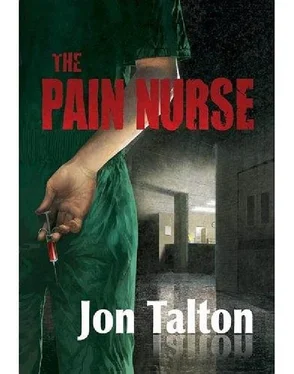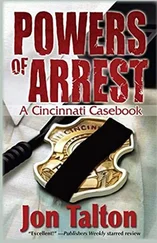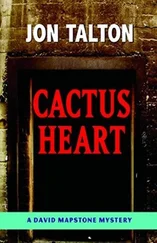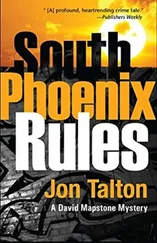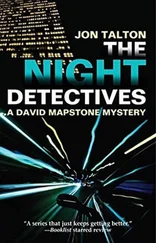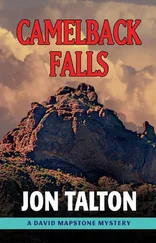“Don’t fucking call me David!” he sputtered. “What are you talking about? What about Dodds?”
“I’ve said too much.”
“Hell, no. Tell me.”
Will turned back to face him, looking him in the eye, then looking away and sighing. “Oh, hell, Stan, not your fault you washed out of homicide. It’s a shit job anyway. Look where you are now. Better than any of us.” Berkowitz had stopped swinging his legs and now had his hands flat on the tops of his thighs, his suit jacket open wide, exposing a little.38 Smith & Wesson in his belt. Will went on, “Let’s just say Dodds wasn’t your friend when you were on loan to the detail…”
“Goddamn it!” Berkowitz slapped the table, slid down, and walked heavily over to his desk, seeming to seek safe harbor. “I always knew it, always knew it. Shit, he wouldn’t even have that job if the department wasn’t under pressure to hire people of a Nubian persuasion, if you get my drift. All the shit we used to take from the Sentinels-hell, they have their own organization! They won’t even support the FOP! I always knew Dodds did me in. I was a good detective.”
Will didn’t bother to correct him: black officers were members of the Fraternal Order of Police, too. The right hot button had been pushed, and how. Will hadn’t exactly lied: Berkowitz had failed to make it in homicide and Dodds had thought he was a lightweight. When the shouting stopped, Will spoke again.
“So tell me about Judd Mason.”
“Yeah, screw Dodds.” Berkowitz flopped into his chair. “Judd Mason. I know him. He’s a circulating nurse. Used to work in the OR.”
“He worked in the operating room with Dr. Lustig.”
“That’s right, now that you mention it.” He rubbed his chin and stared down at the neat piles of papers on his desk. “I always wondered about him. We had a nurse here a couple of years ago, said he was a stalker. I guess they had a thing going and she tried to break it off. We try not to get involved in these kinds of things-hell, there’s more screwing going on around here than you’d believe. But she filed a complaint and I talked to him.”
“Is she…?”
“She left. Moved to Columbus. He left her alone after I talked to him. But he kind of seemed to have a screw loose.”
“How so?” Will asked.
Berkowitz shrugged. “Just something about the guy. Something quiet and strange. I guess he’s an okay nurse. Strange to me to see guys as nurses anyway. What’s their thing unless they’re homos, right?”
“So did you think about Mason when Dr. Lustig was killed?”
“Not really,” he said, crooking his mouth into a downward U. Will looked at him long enough for him to exclaim, “What?”
“Just seems kind of strange,” Will said. “He was stalking a nurse. He had worked with Lustig. She received telephone threats.”
“Didn’t seem connected to me.” Berkowitz held out his hands guilelessly.
“Did this Mason have any cop connections?”
“Huh? Cop connections?”
“Did he have cop friends? Drop any names when you talked to him about stalking?”
He waved it away. “Hey, I’d love to visit all day, but I’ve got a meeting. Off-site, as they say. I’ll let you in on a little secret, Borders. I’m about to leave this dump and take a job as head of security at University Hospital.”
“Congratulations.”
“Hell, yes. Thanks. This place…who knows what’s going to happen. Those neuro docs wanted all the paperwork put on computers. I heard they were going to pull out their practice if it didn’t happen. So they bring in these kids from Silicon Valley, get a big federal grant, and a year later, nothing. Your Dr. Lustig was part of this. Now that she’s dead it’ll be delayed even longer. This place can’t survive on just treating the ghetto. Neuro’s good, though. You were lucky. Lucky to have that city insurance, too. Anyway, University is where this old cop is headed. No more budget cuts. No more worrying about gangbangers coming in to finish off some schmuck they shot down in the ’hood.”
“Why is the hospital covering up this murder?” Will tossed it gently, just as Berkowitz took a breath to continue speaking.
“What are you talking about?”
“A doctor murdered at a city hospital. When I was on homicide that would have been a red ball. Unless somebody had the juice to make it go away.”
Berkowitz sprang up-that effortless move to his feet seemed like a miracle-and started for the door.
“Buddy, I got no comment on any of that. Get my drift? You need to get feeling better.”
“Do the bigs at University know about Robert Cecil?”
Berkowitz stopped midway to the door, his skin suddenly drained of color.
***
It was difficult to explain cops and race to civilians. When Will and Dodds had caught up with Craig Factor, crashing at a crack house on the edge of Liberty Hill, he had sprinted outside and down the street. As usual, it had been left to Will to lead the chase. He knew Dodds would come huffing behind, but he had the speed. He had gotten close enough to grab Factor’s shoulders and wrestle him down to the pavement. They were in the middle of the street. Factor was a big guy, at least two hundred and fifty pounds, and wrestled and swung punches. By the time Dodds had arrived, the two of them were able to get Factor under control, face down, Will’s knee in his back, as they cuffed him. The schools were on spring break, and at least two dozen young black men with nothing to do had gathered on the sidewalk, watching, then catcalling. Then one threw a bottle. It might have gotten uglier if a lot of backup hadn’t arrived quickly. But, Will knew, if a news crew had been filming the arrest, many civilians might have assumed that there was no more to the story than the image of a big white cop abusing a handcuffed black man.
Most cops weren’t racist, but in a city like Cincinnati, with a huge underclass, the police spent most of their time dealing with crime and trouble in black neighborhoods. You could become jaundiced after one shift. You had to fight to remember, most of the people in those neighborhoods were law-abiding, trying to get by. They were under siege. Drugs and guns and too many unemployed young men were a lethal combination. Will had taken the classes, heard the sociology, back when he thought he might get a master’s degree. On the streets, it was a scary reality not covered in the studies and the textbooks. Being a solitary cop at night in a hostile neighborhood.
Too many black men were being shot by the police. Will had investigated some of the shootings; some were righteous, some there was a question. He always tried to do those cases by the book. He knew that he hadn’t been there in that moment of terror, when a life-and-death decision had to be made. When he had been fighting with Craig Factor, before Dodds got there, Factor had been wildly reaching for Will’s gun. Another cop might have just shot the son of a bitch. Will might have, too. Then the first thing the media would have reported was that Will Borders was “a white police officer.” Nothing else would matter but race.
But some cops were racists, and Cincinnati was in many ways a Southern city, right across the river from Kentucky. The color line was hard, reinforced by the city’s makeup of Germans and briars, fierce loyalties and old grudges, built up over time like geologic sediments. Ten years ago, Robert Cecil might or might not have been aware of this history when he pulled off the interstate to eat at a White Castle. He was driving a new BMW, went through the drive-thru, and pulled into the parking lot. It was a warm May night, a little before midnight, so he rolled the driver’s side window down. That was when a white man came up behind him, produced a gun, and ordered him to get out of the car. Cecil instead dropped the car into reverse and tried to get away. The white man fired eight shots through the open window and every one connected. Robert Cecil was black and the white man was an undercover police officer named Berkowitz.
Читать дальше
